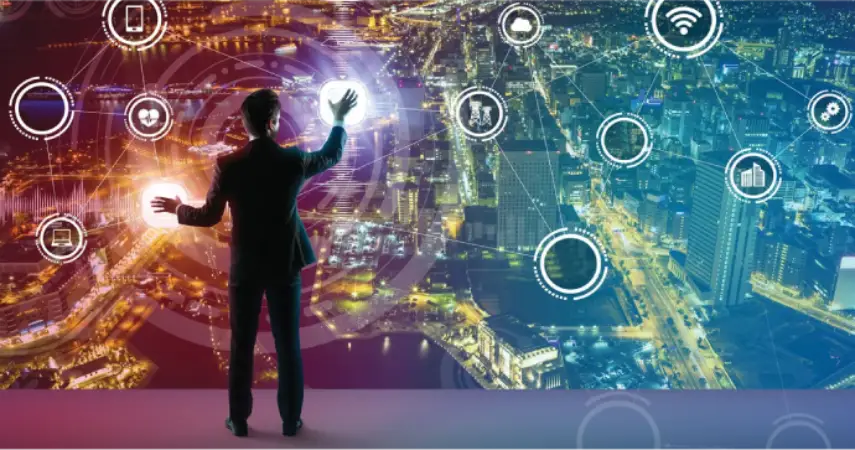Introduction to the Latest Technology Innovations
The world of technology is changing quickly. Every year, we see new inventions and ideas that make our lives better. These latest technology innovations are helping people in different ways, from making work easier to improving communication and healthcare. In this section, we will learn about how technology is evolving and what it means for the future.
Understanding the Rapid Pace of Technology Change
Why Technology Changes So Fast
Technology is always growing because people and companies are working hard to make things better. Today, we can do many things with computers, smartphones, and the internet that we couldn’t do years ago. These latest technology innovations are important because they improve our lives and businesses. They also help solve big problems, such as finding cures for diseases, protecting the environment, and creating new jobs.
How Innovations Impact Everyday Life
The latest technology innovations have a big effect on our daily lives. For example, we now have smart devices that can connect to the internet and help us with tasks like turning off lights, ordering groceries, or even reminding us to take medicine. In transportation, electric cars and self-driving cars are becoming more common. In healthcare, doctors are using robots for surgery, and scientists are developing new medicines using computer models.
These innovations also make it easier for us to learn and communicate. We can attend online classes, make video calls to family members across the world, and even work from home using video conferencing. These advancements were not possible a few decades ago, showing just how much technology has advanced.

Key Areas of Breakthroughs in 2024
Emerging Latest Technology Innovations Watch This Year
In 2024, many exciting latest technology innovations are shaping the world. One of the most talked, about areas is artificial intelligence (AI). AI is a technology that allows computers to learn from data and make decisions on their own. This year, AI is helping companies in many ways, such as making customer service faster and improving healthcare by detecting diseases early.
Another key innovation is 5G technology. This is the new version of mobile internet, which is much faster than 4G. 5G allows for quick downloads, smooth video calls, and even new technologies like self-driving cars. It’s changing the way people connect and use the internet.
Breakthroughs in Medical and Environmental Technology
In 2024, there are also important breakthroughs in medical and environmental technology. In medicine, new innovations like gene editing are helping doctors treat diseases that were once thought impossible to cure. This technology allows scientists to change genes to fix problems in the body, opening up new possibilities for curing serious illnesses.
For the environment, new green technologies are being developed to fight climate change. One exciting innovation is solar energy. Solar panels are becoming more efficient, allowing homes and businesses to generate their own electricity from the sun. Other technologies, like electric cars and carbon capture systems, are helping reduce pollution and make the planet healthier for future generations.
Artificial Intelligence and Machine Learning in the Latest Technology Innovations
Artificial intelligence (AI) and machine learning are key parts of the latest technology innovations. These technologies are changing how we live and work. AI and machine learning make computers and machines smarter. They can learn from experience, make decisions, and solve problems without human help. This section explains how these innovations work and why they are so important today.
The Role of AI in Modern Innovations
How AI Works in Everyday Life
AI is a type of computer program that can think and learn like humans. It is found in many devices we use every day. For example, when you ask a smart speaker a question, AI helps it understand your words and give an answer. When you use your phone to find the fastest way home, AI is used to choose the best route.
Why AI is Important for the Future in Latest Technology Innovations
AI will be even more important in the future. As AI improves, it will help solve big problems in the world. For example, AI can help scientists find cures for diseases. It can also help farmers grow more food with fewer resources, which means we can feed more people with less land and water.
The latest technology innovations in AI are important because they can make everyday tasks easier. In the future, self-driving cars may use AI to take us places without human drivers. AI might also help run businesses by making smart decisions faster than humans can.
Latest AI Technology and Use Cases
How AI is Transforming Industries
The latest technology innovations in AI are changing industries everywhere. New uses of AI make industries more efficient and safer. As technology improves, we will see even more ways AI can help people at work and in everyday life. AI and machine learning will continue to be some of the most important innovations in the years to come.
Quantum Computing: The Future of Processing Power in the Latest Technology Innovations
Quantum computing is one of the most exciting latest technology innovations. It is different from the regular computers we use today. Quantum computers are much more powerful and can solve problems much faster. This section will help you understand what quantum computing is and why it is important for the future.
What is Quantum Computing?
The Difference Between Classical and Quantum Computers
Most computers today are called classical computers. They process information in a way that is similar to turning switches on and off. These switches are called bits, and they are either a 1 or a 0. This simple system works for many things, like playing games or sending emails. However, for more complicated tasks, classical computers are not fast enough.
Why Quantum Computing Matters
Quantum computing is important because it can help solve problems that are too hard for regular computers. For example, quantum computers can help scientists discover new medicines. They can also help create better materials for building things like cars and airplanes. Quantum computing can even help improve cybersecurity by making systems much harder to hack.
These are just a few reasons why the latest technology innovations in quantum computing are so exciting. The ability to solve big problems faster could help make our world safer, healthier, and more advanced.
Quantum Latest Technology Innovations in 2024
The Latest Breakthroughs in Quantum Computing
In 2024, there are many new developments in quantum computing. Scientists and engineers are finding ways to make quantum computers more powerful and stable. Some of the latest technology innovations in quantum computing involve making qubits more reliable. This is important because quantum computers can make mistakes when they process information.
The Future Potential of Quantum Computing
The future of quantum computing looks very bright. As technology improves, quantum computers could help solve even bigger problems. They could help us understand the universe better, find new energy sources, and protect our planet from climate change. The latest technology innovations in quantum computing could lead to new discoveries that change how we live and work.
Quantum computing is still in its early stages, but it holds great promise for the future. It is one of the most important technologies to watch in the coming years.
Blockchain and Cryptocurrency Technologies in the Latest Technology Innovations
Blockchain and cryptocurrency are part of the latest technology innovations that are changing the way people use and manage money. These technologies are making transactions more secure and private. This section will explain what blockchain and cryptocurrency are and how they are being used today.
The Growing Impact of Blockchain on Security
How Blockchain Works
What makes blockchain one of the latest technology innovations is its security. Because the information is stored on many computers instead of one, it is very hard for hackers to break into the system. This makes it a safe way to record transactions like buying things online or transferring money. It is also used for other things, such as tracking goods in a supply chain or storing medical records.
Blockchain Beyond Cryptocurrency
While blockchain is most famous for its connection to cryptocurrency, it has many other uses. Companies are now using blockchain to improve the security of their data. This technology helps them track products, make sure they are real, and prevent fraud. Blockchain is becoming one of the latest technology innovations that businesses use to protect themselves and their customers.
Green Energy in the Latest Technology Innovations
Green energy is an important part of the latest technology innovations. It helps protect the environment by using energy from natural sources like the sun, wind, and water. These sources are clean and renewable, meaning they won’t run out.
How Green Energy Helps
Using green energy reduces pollution and helps fight climate change. Many countries are now using solar panels and wind turbines to power homes and businesses. These latest technology innovations in green energy are making our world cleaner and safer for future generations. Green energy is key to building a better, more sustainable future.
FAQ
What are the latest technology innovations in 2024?
The latest technology innovations in 2024 include AI, quantum computing, blockchain, and 5G, all of which are changing industries and daily life.
How is AI shaping the future?
AI is making machines smarter, helping solve complex problems in healthcare, transportation, and education by improving efficiency and accuracy.
What is quantum computing, and why is it important?
Quantum computing uses qubits to process information faster than classical computers, solving problems in seconds that would take years.
How does blockchain improve security?
Blockchain ensures safe transactions by storing data on multiple computers, making it nearly impossible for hackers to alter or steal information.
What is cryptocurrency, and how is it used?
Cryptocurrency is digital money that uses blockchain. It’s used for online purchases, investment, and secure international money transfers.
What industries are adopting the latest technology innovations?
Industries like healthcare, finance, education, and transportation are rapidly adopting innovations like AI, quantum computing, and blockchain.
Will these latest technology innovations be accessible to everyone in the future?
Yes, as technology continues to evolve, these innovations are expected to become more affordable and accessible to people worldwide.
Conclusion
The latest technology innovations are making our world better and more efficient. From AI and machine learning to green energy and blockchain, these advancements are improving many parts of our lives. With each new invention, industries are growing, and people are finding easier ways to solve everyday problems. These innovations are helping us live smarter and healthier lives.
As we move forward, it is clear that technology will continue to play a big role in our future. While some changes may seem small at first, they often lead to bigger improvements over time. By embracing these latest technology innovations, we can look forward to a world where tasks are easier, industries are safer, and people live more connected lives. The future of technology holds endless possibilities, and we are just at the beginning of this exciting journey




